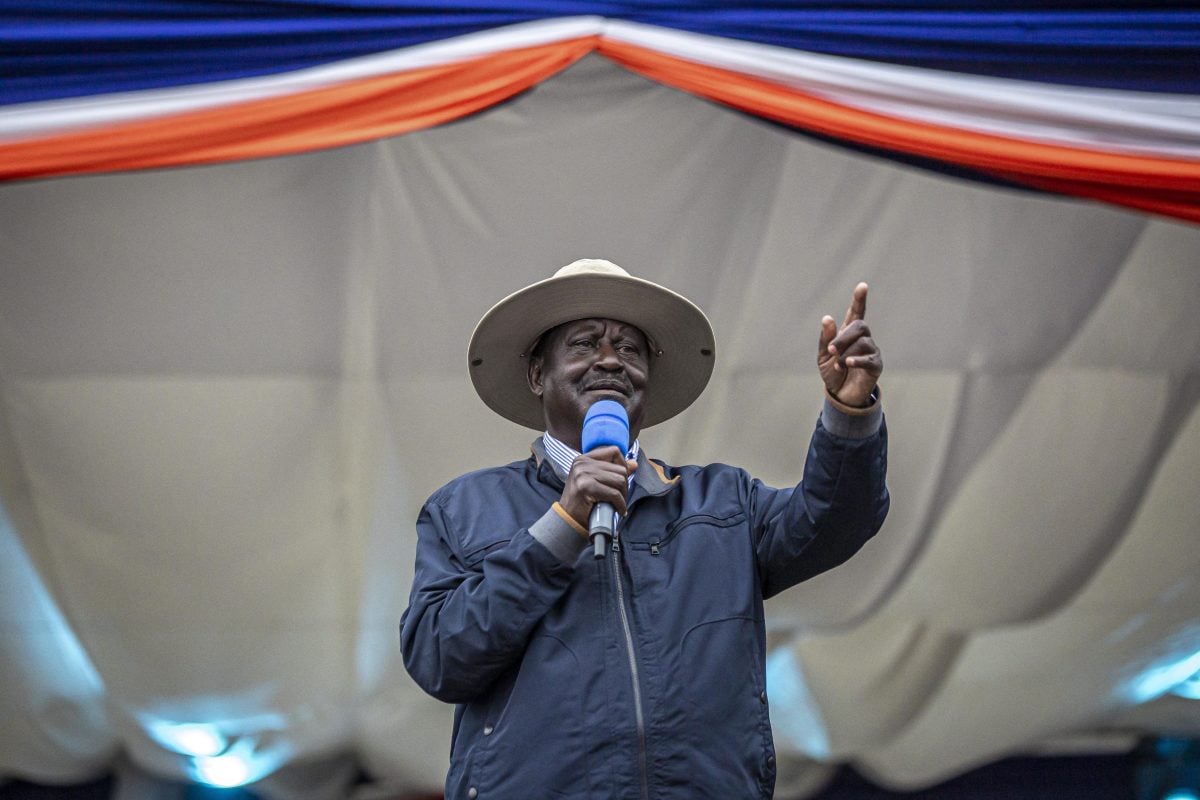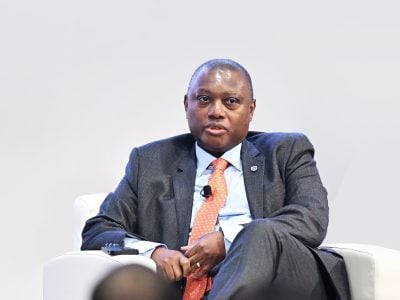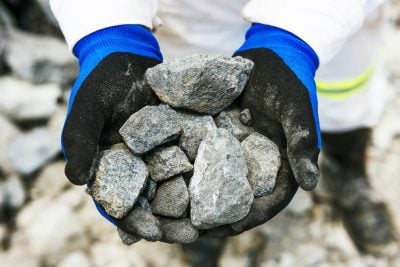Raila Odinga, Kenya’s former prime minister and one of the country’s most influential political figures, died on 15 October in the southern Indian city of Kochi. Odinga suffered a cardiac arrest while on a morning walk in the grounds of an Ayurvedic clinic where he had been undergoing treatment. He was 80.
In the capital Nairobi, his hometown of Bondo, and other parts of the country crowds gathered in the streets to pay homage to a man they affectionately called “baba” (Swahili for father). At the time of his death, he was the party leader of the Orange Democratic Movement (ODM), a major political party that he founded in 2005.
From detainee to political supremo
The son of Jaramogi Oginga Odinga – an independence-era hero and Kenya’s first vice president under Jomo Kenyatta – Odinga cut his teeth in politics in the 1980s, during a turbulent chapter in the nation’s history.
His rise was marked by confrontation with the autocratic regime of the late President Daniel Moi, which accused him of involvement in the failed 1982 coup attempt and detained him on charges of treason. He spent six years in detention, but was rearrested twice – in late 1988 and again in 1990.
Fearing for his life, he fled to Norway. He returned to Kenya in 1992 after constitutional reforms reinstated multi-party democracy. That same year, he won the parliamentary seat for Nairobi’s Lang’ata constituency.
Following his debut in elective politics, Odinga emerged as a firebrand opposition leader who spoke truth to power. He was particularly adept at mobilising mammoth crowds to protest against state excesses, becoming both a symbol of resistance and a polarising force in national politics.
On the back of this momentum he launched his first presidential bid in 1997, but lost to the incumbent President Moi. In a spirited decades-long quest for the presidency he ran in 2007 against Mwai Kibaki, in 2013 and 2017 against Uhuru Kenyatta, and in 2022 against William Ruto. Odinga often attributed his defeats to vote-rigging and systemic flaws in Kenya’s electoral process.
A knack for forging alliances
Despite this string of electoral defeats, Odinga’s political fortunes grew steadily over the years. This was due to his knack for forging timely alliances with the establishment, offering political cover to unpopular presidents in exchange for proximity to power and state appointments for allies and loyal party members – all while officially in opposition.
His first alliance was with Moi after the 1997 elections, when he made a deal to support Moi and was appointed energy minister. He ditched Moi in 2002 and campaigned for Kibaki, who he would later fall out with and run against in the disputed 2007 polls. In the wake of violent clashes between his supporters and Kibaki’s he entered a power-sharing agreement with Kibaki in 2008, serving as prime minister in a coalition government.
In 2017 he reconciled with Kenyatta, who backed his 2022 presidential bid against Ruto. Following Ruto’s victory, Odinga found himself joining what was described as a “broad-based government”.
Moses Kuria, a former minister, quipped that although Odinga was the official opposition leader he was “always in the warm corner of the opposition”.
Condolence messages stream in
After the news broke, leaders from Kenya and beyond have been sending their condolences to Kenyans and the family of the man who deservedly earned the sobriquet “the enigma of Kenyan politics”.
Kenyatta, in a condolence post on X, said: “Baba, as we fondly referred to him, was a man who made you sharpen your own ideas, compelling you to defend your positions with rigor and passion…the journey from fierce political opponents to partners in the pursuit of ‘Handshake’ unity taught me the true measure of the man. I saw firsthand his unwavering passion for this country, his deep-seated belief in justice, and his incredible capacity to think beyond personal ambition for the sake of national unity.”
In a state address, Ruto declared that the nation will observe a period of national mourning until Odinga’s interment and that he will be accorded a state funeral.
“Our nation, our continent, and our world have lost a titan of conscience, a visionary of uncommon resolve, and a defender of the defenceless whose legacy will illuminate Kenya’s democratic path for all time.”
Want to continue reading? Subscribe today.
You've read all your free articles for this month! Subscribe now to enjoy full access to our content.
Digital Monthly
£8.00 / month
Receive full unlimited access to our articles, opinions, podcasts and more.
Digital Yearly
£70.00 / year
Our best value offer - save £26 and gain access to all of our digital content for an entire year!

 Sign in with Google
Sign in with Google 



